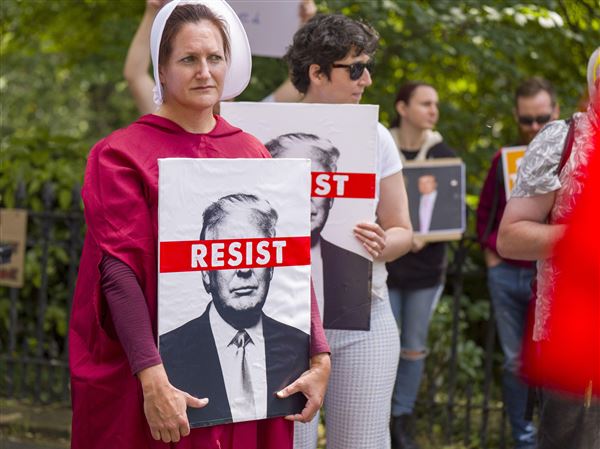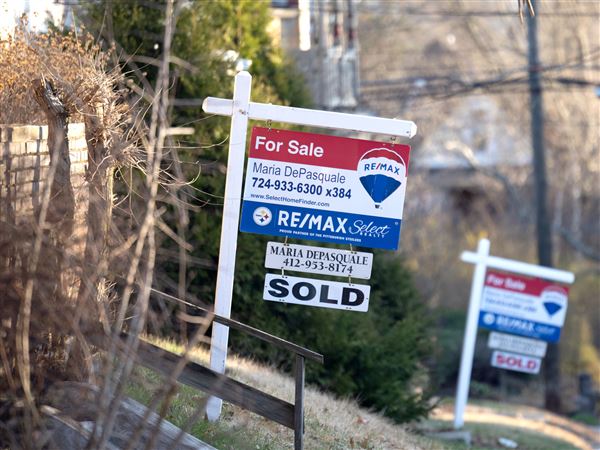HARRISBURG -- The capital city of Pennsylvania, facing a budget deficit for 2011 and several hundred million dollars in municipal debt, is edging closer to a financial takeover by the state.
This city of 50,000 may not be able to make a $3.3 million bond payment that is due to lenders by midweek. It's part of the $300 million that is owed for several refinancings of funds borrowed over the years to fix a faulty municipal trash incinerator, which has had many problems. The large amount of state buildings and other tax-exempt property reduces property taxes to city coffers.
The city has had trouble scraping together $1 million to pay its 500 municipal workers on Thursday and another $1 million for Sept. 29, but Robert Philbin, an aide to Mayor Linda Thompson, said last week he now expects the workers to be paid on time. Talks are ongoing to avoid the incinerator bond default, but the city has an additional $90 million in general obligation bonds to repay.
City controller Dan Miller, with whom Ms. Thompson has been at odds, said the city's $56 million budget for this year looks like it will be $4 million short unless debt negotiations with lenders produce additional money. The Miller-Thompson friction increased last week, when he disclosed he'll run against her in 2013.
The seven-member city council, which also has bickered with Ms. Thompson, has twice rejected financial bailout plans, angering Gov. Tom Corbett and Republicans who run the Legislature. One plan -- 400 pages long, developed by state consultants under Act 47 of 1987 -- was voted down 4-3 in July. Ms. Thompson then revised that plan, and even though it had support from Mr. Corbett, council rejected it 10 days ago on an identical vote.
Harrisburg finances "are a mess," said longtime political observer G. Terry Madonna of Franklin & Marshall College.
"It's definitely a serious situation," said Rep. Glen Grell, R-Cumberland, whose suburban Harrisburg district lies just west of the capital. He is preparing one of two measures aimed at giving the state greater control over the city's finances.
The other bill comes from Sen. Jeffrey Piccola, R-Dauphin. It was approved by the Senate in June and could go before the House in late September. It would create a three-member, state-appointed committee to implement the state's July financial recovery plan. Act 47 now covers about 20 distressed municipalities, including Pittsburgh, Philadelphia and Reading.
Mr. Piccola, who lives just outside Harrisburg, said it was "irresponsible and reckless" for council to reject the state's Act 47 plan, and he has called on Mr. Corbett to freeze state aid for the city until the takeover legislation is approved.
City officials "have proven their inability to ... compromise on a plan that is responsible for Harrisburg," Mr. Piccola said. "This mayor and council have not taken productive action in over a year. We've already waited too long and cannot afford to further delay."
Mr. Corbett is siding with the GOP critics. Because council has "rejected two proposals to put Harrisburg back in good fiscal order, the ball is in council's court and the governor is awaiting their recommendations," said Corbett spokeswoman Kelli Roberts. Mr. Corbett "hopes this situation will not come to a state takeover but has on multiple occasions said he will sign legislation proposed by Sen. Piccola if it comes to his desk."
City council President Gloria Martin-Roberts has said she expects a state takeover.
Mr. Grell isn't ready to go quite as far as Mr. Piccola wants to. Mr. Grell said he fears setting up a committee to actually run the city could run afoul of a provision in the state constitution that says the state shouldn't "usurp" powers best left to local authorities.
"Time is important here, and we don't want to risk a delay that a court challenge would cause," Mr. Grell said. He would rather amend Mr. Piccola's measure, Senate Bill 1151, to give the governor power to "declare a fiscal emergency" for any "distressed city" under Act 47. This would give the secretary of the state Department of Community and Economic Development 10 days to set up an emergency plan to ensure continued police, fire, emergency medical and other important city services for either 60 or 90 days -- the length of time isn't set yet.
During that period there would be "forced negotiations" between the state and the city to develop a long-term recovery plan. But if there is no agreement after that time, the governor would choose a "receiver" to run the city. Mr. Grell said he's talking now with Mr. Piccola and would offer the amendment when the House returns Sept. 26.
The four council members who voted down the two recovery plans complained they're too painful, requiring layoffs of city workers, wage freezes, restructuring of benefits, higher property taxes and the sale of money-producing city assets, such as parking garages. Council is hoping for additional aid from the state or Dauphin County commissioners, but none has been offered.
Ms. Thompson had been pushing for additional income by creating a commuter tax on suburbanites who work in the city. That could be done by increasing the city's current 1 percent Earned Income Tax to 2 percent, which would affect many out-of-towners who work in the city. State government is one of the area's largest employers.
Mr. Miller said such an increase would bring in $22 million more a year, more than enough needed to resolve the budget deficit and city debt. But an EIT increase would need approval from the DCED and a Dauphin County judge, he said, which could make it hard to implement. Legislative Republicans, obviously, are strongly against a commuter tax.
While there are other financially distressed currently under Act 47, Mr. Madonna sees Harrisburg as a special case.
"This is the seat of state government, which gives it a status no other city has. A lot more eyes are focused on Harrisburg than on other cities," he said.
Mr. Miller said there is another possibility for the city -- filing for federal bankruptcy law protection, to hold creditors at bay until more debt restructuring talks are held.
Five local governments around the U.S. have filed for bankruptcy this year, according to Bloomberg News.
But there are emotional as well as financial consequences from such a move, Mr. Madonna said. "It would play a huge role in whether outside people and companies will invest in the city. Bankruptcy carries a stigma that likely could prevent future investment."
First Published: September 11, 2011, 4:00 a.m.















